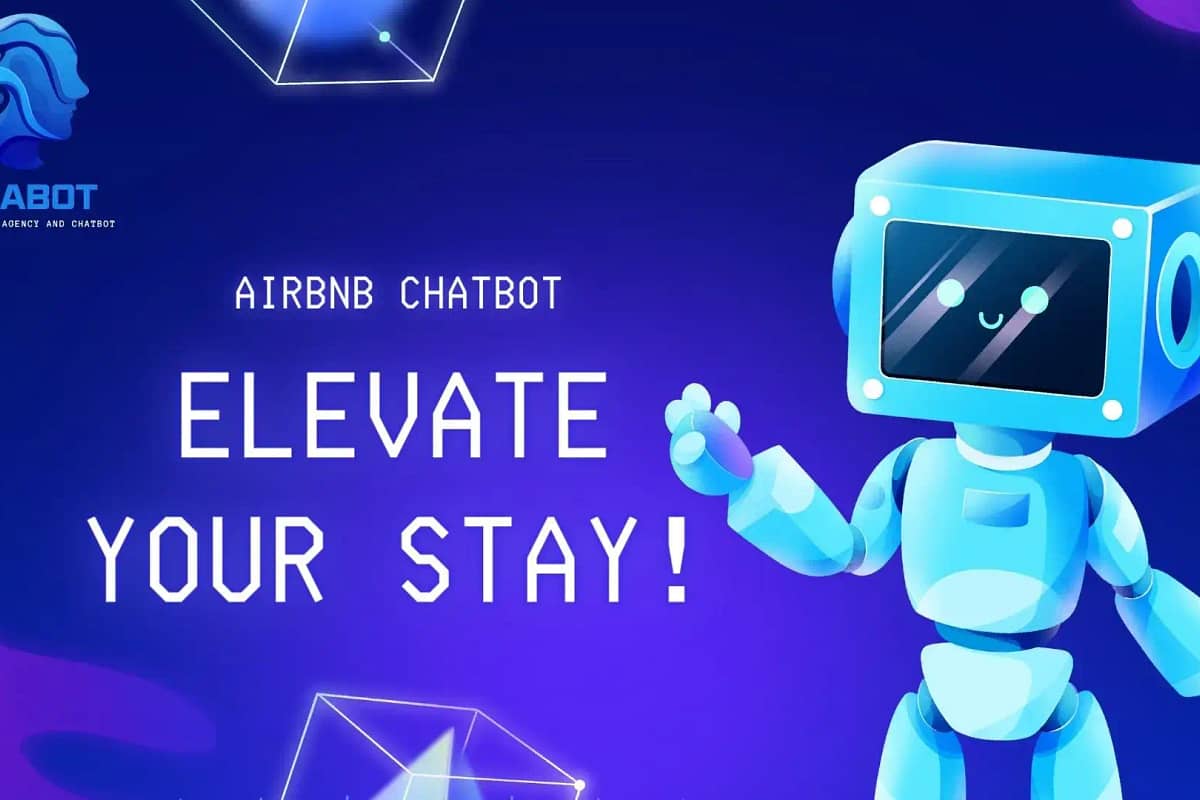Becoming a chatbot developer is more than just coding; it’s about creating smart, interactive experiences. While some tech jobs focus on backend systems or data analysis, chatbot development combines creativity with technical skills. This role demands an understanding of natural language processing and user behavior to build bots that feel human. Dive into this guide to learn the essential steps and tools needed to excel in this dynamic field.
Key Takeaways
- Understand the Importance: Chatbots are crucial for enhancing user experience and streamlining customer service operations.
- Know the Role: A chatbot developer creates, tests, and maintains chatbots to ensure they meet business needs and user expectations.
- Skill Set Matters: An SEO-savvy chatbot developer should be proficient in programming, natural language processing, and SEO strategies to optimize chatbot performance.
- Choose Wisely: When selecting a chatbot developer, consider their experience, portfolio, and ability to integrate SEO best practices.
- Effective Implementation: Successful chatbot deployment requires thorough planning, testing, and continuous optimization based on user feedback.
Why Chatbots Matter
Enhancing Customer Service
Chatbots provide instant responses to customer inquiries. They handle high volumes of requests without human fatigue. These bots can be customized to offer personalized customer service experiences.
Driving Sales
Businesses leverage chatbots for product recommendations based on user behavior. They integrate chatbots into the sales funnel to nurture leads effectively. Utilizing chatbots for upselling and cross-selling products helps increase revenue.
24/7 Availability
Chatbots are operational round the clock for global customer access. They manage after-hours queries, reducing response time. Fail-safes ensure complex issues escalate to human agents when necessary.
Saving Costs
Automating routine customer service tasks with chatbots reduces operational costs. Companies minimize human resource expenses by employing chatbots for basic inquiries. Investing in chatbot development cuts down on long-term customer service expenses.

The Role of a Chatbot Developer
Designing Conversations
Chatbot developers craft scripts that mimic human conversation. This creates a natural user experience. They implement conversational flows to guide users efficiently. These flows help users reach their desired outcomes.
Developers also test and refine chatbot dialogue. This ensures clarity and effectiveness in communication. Testing is crucial for improving the chatbot’s performance.
Integrating AI
Incorporating artificial intelligence enables chatbots to learn from interactions. Over time, this improves their responses. AI helps analyze user data, personalizing conversations for better engagement.
Natural language processing (NLP) is used by developers. NLP allows chatbots to understand and respond to complex queries. This makes interactions smoother and more efficient.
Managing Data
Chatbots collect valuable customer data during interactions. Developers ensure this data is stored securely and complies with regulations. Data privacy is a top priority.
Analyzing chatbot-collected data provides insights into customer behavior. These insights help businesses understand preferences better. It can lead to improved services and products.
Ensuring Security
Robust security measures protect user data collected by chatbots. Developers regularly update software to safeguard against vulnerabilities. Keeping the software current is essential for security.
Educating users on secure interactions with chatbots prevents data breaches. Users must know how to interact safely with chatbots.
Skills of an SEO-Savvy Chatbot Developer
Understanding SEO Basics
Keywords play a crucial role in chatbot conversations. They help improve SEO by making content more discoverable. Chatbots can increase website dwell time, which benefits SEO rankings. They keep users engaged with relevant information.
By engaging users, chatbots also reduce bounce rates. This is important for maintaining a healthy website ranking.
Crafting SEO-Friendly Content
Chatbots suggest content based on user queries, enhancing SEO efforts. They embed targeted keywords in their scripts to improve search engine visibility. This helps websites rank higher in search results.
Designing chatbot interactions to promote key content boosts SEO performance. Users find important information quickly and stay longer on the site.
Analyzing User Intent
Training chatbots to recognize different types of user intent results in more accurate responses. This improves user satisfaction and retention. Chatbot interactions gather data on common user intents, refining the overall content strategy.
Implementing adaptive responses caters to varying user intents effectively. This makes the conversation feel more personalized and helpful.
Improving Engagement
Integrating multimedia into chatbot conversations enriches user interaction. Videos, images, and links make the experience more engaging. Chatbots conducting surveys and quizzes increase user engagement by offering interactive elements.
Personalized greetings and responses based on user history foster a stronger connection with visitors. This leads to higher satisfaction and repeat visits.
Choosing the Right Chatbot Developer
Assessing Experience
Collect user feedback on chatbot interactions to assess satisfaction levels. This helps understand how users feel about the chatbot.
Analyze chatbot conversation logs to identify areas for improvement in user experience. Look for patterns where users struggle or drop off.
Implement A/B testing with chatbots to determine the most effective interaction strategies. Test different versions to see which performs better.
Checking Portfolio
Review the chatbot developer’s previous projects to evaluate creativity and effectiveness. Look for innovative solutions they have implemented.
Assess the diversity of industries and platforms in the developer’s portfolio. A wide range of experiences shows adaptability.
Look for evidence of successful integration with existing systems and technologies. This shows how well they can work within different environments.
Considering Communication Skills
Evaluate the developer’s ability to clearly explain chatbot functionalities and limitations. They should make complex ideas easy to understand.
Assess the developer’s responsiveness to feedback and questions during the project. Timely responses indicate good communication skills.
Ensure the developer can effectively communicate technical concepts to non-technical stakeholders. This is crucial for collaboration with various team members.
Evaluating Technical Expertise
Verify the developer’s proficiency in programming languages and tools relevant to chatbot development. Common languages include Python, JavaScript, and Java.
Assess the developer’s experience with AI and machine learning technologies. These are essential for creating intelligent chatbots.
Consider the developer’s ability to implement security and data protection measures. Security is vital for protecting user data.

Implementing Your Chatbot
Planning Strategy
A developer must align chatbot functionality with business goals. This ensures the bot meets specific needs. Scalability is crucial. The developer should plan for future integrations. This helps in adapting to new technologies.
User engagement is key. The developer’s strategy should focus on retaining users through meaningful interactions. A well-planned strategy keeps users coming back.
Developing Content
Creating engaging content is essential. Developers need to craft relevant and interesting conversations for the chatbot. Understanding brand voice is important. The bot should reflect the company’s tone and style.
Content must drive user actions. Developers should design prompts that encourage desired behaviors, like making a purchase or signing up for a newsletter.
Testing and Feedback
Thorough testing identifies issues before launch. Developers need a detailed process to find and fix bugs. Collecting user feedback after launch is vital. It helps in understanding user experience and improving the bot.
Iterative improvements are necessary. Developers should be willing to adjust based on performance data and feedback, ensuring continuous enhancement of the chatbot.
Launch and Monitor
A smooth rollout plan ensures users can start using the chatbot without problems. Monitoring performance post-launch helps in identifying areas needing improvement.
Ongoing maintenance is crucial for effectiveness. Regular updates keep the chatbot functioning well and meeting user expectations.
Final Remarks
You’ve seen why chatbots are game-changers and what it takes to be a top-notch chatbot developer. From mastering SEO to picking the right expert, each step is crucial for your success. Implementing an effective chatbot can elevate your customer interactions and drive business growth.
Ready to dive in? Hire a skilled chatbot developer today and watch your engagement soar. Don’t wait—take action now and transform your customer experience. Your future clients will thank you.
Frequently Asked Questions
Why are chatbots important for businesses?
Chatbots improve customer service, reduce operational costs, and provide 24/7 support. They enhance user experience by offering quick responses and personalized interactions.
What does a chatbot developer do?
A chatbot developer designs, creates, and maintains chatbots. They ensure the chatbot understands user queries and provides accurate responses.
What skills should an SEO-savvy chatbot developer have?
They need proficiency in programming languages, NLP, and AI. Understanding SEO principles is crucial for optimizing chatbot content to rank well on search engines.
How do I choose the right chatbot developer?
Look for experience in AI and NLP, strong problem-solving skills, and a good portfolio. Check reviews and ask for references to ensure reliability.
Can implementing a chatbot benefit my business?
Yes, it can streamline customer interactions, reduce costs, and boost engagement. Chatbots also gather valuable data to improve services.
How long does it take to develop a chatbot?
Development time varies based on complexity but typically ranges from a few weeks to several months. A simple bot might take less time than a complex AI-driven one.
What platforms can chatbots be implemented on?
Chatbots can be integrated into websites, mobile apps, social media platforms like Facebook Messenger, WhatsApp, or even voice assistants like Alexa.






